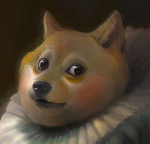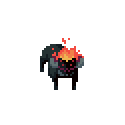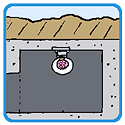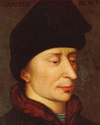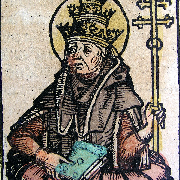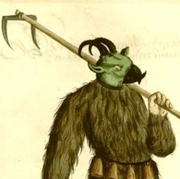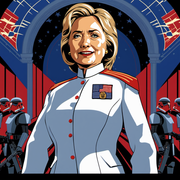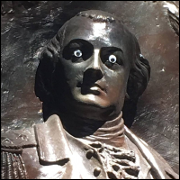|
SaltyJesus posted:Is that where the term Bessarabia comes from? Bulgars were also a turkic tribe that formed a state, ruled over the local population and then got assimilated. Yes, Basarabia (in romanian) is named after the Basarab dynasty which was started by Basarabai; as a bit of trivia, the House of Basarab also included the famous Vlad the Impaler. I should say there is still a small controversy here about whether the Basarabs were of cuman or romanian origin, but most mainstream historians are now supporting the cuman version, while the romanian version is pushed by nationalists who can't accept that Wallachia was founded by a bunch of turks originating from eastern China or whatever.
|
|
|
|

|
| # ? Jun 1, 2024 13:13 |
|
SaltyJesus posted:Alright, time for two more maps and then I'll take a break from this thread. Only tangentially connected, but the other Frankish realm besides Neustrasia was Austrasia, of which Charles Martel was the Mayor of the Palace. If I go full stereotype, I can only imagine the poor American trying to distinguish between Austria, Austrasia and Australia. Lord Hydronium posted:
I love how the English decided to call the people of the Netherlands "Dutch".
|
|
|
|
The slavic nemets actually means "mute", it got applied to foreigners because they couldn't speak the language. It works kinda like ancient Greeks and the word "barbarian".
|
|
|
|
Torrannor posted:I love how the English decided to call the people of the Netherlands "Dutch". In fairness at the time that word was coined the Netherlanders were german in one way or the other. Germany on the other hand wasn't a thing.
|
|
|
|
Phlegmish posted:SaltyJesus, I believe you when you say that the current form of ethnic nationalism in the Balkans has its roots mostly in the twentieth century. Differences in religious denomination don't necessarily lead to disunity, as evidenced by the Netherlands where the Catholic areas actually were marginalized by the Protestant state for centuries. Yugoslavia does not inherently seem like a bad idea, and I imagine I would have been in favor of it as a Southern Slav in the early twentieth century. Disclaimer: I am not from any of the former Yugoslav countries (I have zero family history east of southern France to boot) so I can't give a local's answer on the topic, but Yugoslav history is a huge hobby of mine so I'm going to take a stab at answering this. SaltyJesus and any other ex-Yugoslav guys please correct me if I get something wrong. As has been noted multiple times in this thread already, Serbian nationalism (and ethnic nationalism throughout the Balkans as a whole) didn't realy get off the ground until the 19th century at the earliest. In the Serbian case, it was the first country of what would become Yugoslavia to gain its independence from the Ottoman Empire. How'd that happen? Well, during the first decade of the 19th century, while Napoleon was busy getting history's attention, a Serb pig farmer named Karadjordje Petrovic (literally "Black George Petrovic") led an uprising against the local Ottoman overlords. When I say "Ottoman" here, I do not mean "sanctioned by the Porte"--these guys in charge of the Pashalik of Belgrade (as the area around Belgrade was called at the time) were some Janissaries and other strongmen who got into power and were too strong for Istanbul to deal with. So the First Serbian Uprising wasn't really a move against the Ottoman government proper, but a rebellion against these strongmen that were oppressing the crap out of the local population. Ethnic distinction didn't factor into this very much, as far as I can tell. Due to the politics of the Napoleonic Wars, though, these rebels around Belgrade ended up losing Russia's support--the Russians had recently made peace with the Ottomans, and with the French, who were allied with the Ottomans, so arming rebels within Ottoman territory would have been pretty unbecoming. Long story short, Petrovic's uprising fails. Don't forget about Karadjordje's family line, though, because eventually these guys will be monarchs of Serbia and, later, Yugoslavia. The Second Serbian Uprising (1815-1817) happened under the guidance of a guy named Milos Obrenovic. This period of Serbian history is not my strong suit, so I won't be very informative, but long story short, following the (successful) uprising, the Pashalik of Belgrade gets a good degree of autonomy. This autonomy would increase as the decades went on and the Ottoman Empire weakened. It's worth noting that the Russians played a pretty important role in smacking around the Ottomans and winning increased autonomy for Balkan regions as a whole, not just Serbia. As for Obrenovic, his family line would start ruling Serbia at this point, first as Princes under Ottoman rule and later as full-fledged kings once Serbia gained its independence, which happened in in 1878. The House of Obrenovic would rule until officers in the Serbian army launched a coup in 1903. as part of the resolutions of the Congress of Berlin, and at this point the process of creating a Serbian national identity begins in earnest. One of the big hobby horses of Serbian nationalists at the time was how they as Serbians represented the first wave of Balkan Slavs to gain independence and thus had a duty to free brother Slavs, particularly in the area around Yugoslavia, from the Ottoman (and Hapsburg) yoke. To this end, there was a noticeable effort to unite the Serbs, Croats, Bosnians, and so on under the banner of "Yugoslavs"--which was also sort of code for "Serbian" since a lot of the characteristics that were used to identify separate ethnic groups weren't totally compatible with this context. For example, we already saw in one of SaltyJesus' posts about how language in the area is a mass of gray area. Religion was also not widely considered. In the Serbian narrative of the time, then, they were all brother Serbs suffering under the Ottoman despots and would act fraternally once they all lived in the same house, so to speak. So Serbian nationalists start adopting hostile postures towards Austria-Hungary in addition to the Ottoman Empire (since A-H was in charge of Croatia and Bosnia-Hercegovina at the time). To this end, they unite with other Balkan states(such as Greece and Bulgaria) to kick out the Ottoman Empire from Europe in the First Balkan War, but then that same Balkan alliance was broken when war began between the Bulgarians on one side and the Serbians and Greeks on the other. The Ottomans decided to join in to recoup some territorial losses (which were major) from the First Balkan War. As you can imagine, these wars were crucial in feeding some of the nationalistic fervors that would be important in the politics of World War I and beyond. Macedonia also became an issue, as the country lies smack between Serbia, Bulgaria, and Greece, all of which had designs on the region--though in the long run, Macedonia would become a republic within Yugoslavia, so there's that. Finally, one year after the Second Balkan War's conclusion, some weedy young aspiring revolutionary named Gavrilo Princip decided to kill the Archduke of Austria-Hungary while he was visiting Sarajevo. You all know the rest of the story. Serbia got it's poo poo kicked in pretty badly during the war--it was surrounded by enemies in the form of Austria-Hungary and Bulgaria, who were both feeling quite sore about Serbia's shenanigans these last few years--to the point that there was a massive exodus out of Serbia. Through the Albanian mountains. In the dead of winter. Still, as a state, Serbia didn't make out too badly in the postwar deals--it was here that Yugoslavia was born, in the shape of the Kingdom of Serbs, Croats, and Slovenes. It was a monarchy under the Karadjordjevic dynasty (remember, the Obrenovics, who first ruled the independent Kingdom of Serbia, were finished when the last of their number was killed in a coup in 1903 and replaced by Petar Karadjordjevic) although a legislative body with democratically-elected representatives--the Skupstina--did meet. However, there were some ethnic tensions bubbling about this point, best exemplified in the dramatic events of 1929. So the stage is this: we have a politician named Stjepan Radic, who was the leader of the Croat Peasant's Party, the main Croat party in the Kingdom. One day, while the Skupstina is in session, he gets into a scuffle with the Serbian nationalist politician Punisa Racic. Racic draws his revolver and shoots Radic and his son. This, as you can imagine, did not go over well with the Croat population that supported Radic, and in order to keep things from flying off the handle King Aleksandar I Karadjordjevic declares himself the absolute ruler of Yugoslavia. He was shot on a visit in southern France in 1934 by Vlado Chernozemski, a Bulgarian with a long track record of terrorism who at the time was working for the Macedonian nationalist organization IMRO. Now, the 1934-1940 period is another bit I'm not very clear on, but World War II for Yugoslavia was...interesting. See, the Italians had claims to areas in and around Yugoslavia, such as the northern Adriatic town of Rijeka (called Fiume in Italian) so as you can imagine Mussolini had an eye on the Balkans, which meant Hitler had an eye on the Balkans when Mussolini cocked it all up and asked the Germans for help. After the resulting invasion, Yugoslavia was divided in two: the area roughly corresponding to modern Croatia and Bosnia-Hercegovina was used to create the fascist Independent State of Croatia, ruled by Croat nationalist Ante Pavelic and his Ustase party. The rest was made into an Axis-occupied rump state. Pavelic, as you can imagine, did not care much for human rights, as shown by the Jasenovac concentration camp, which to my knowledge was the only concentration camp in WWII not built by the Germans. So who were Pavelic's victims? For starters, the usual: Jews, Romani, etc. However, the main victims of the Ustase were ethnic Serbs, who made up the majority of Jasenovac's dead. There were resistance movements to the Ustase, of course. Two, as a matter of fact: the partisans and the Chetniks. This isn't actually the first time Chetniks appear in Serbian history, but it is the first time as far as I can tell that they play a major role in Serbian/Yugoslav politics so I'm introducing them here. The Chetniks were Serbs, first and foremost, and very nationalistic. This is not to say that they were 100% opposed to the Ustase government, though; they sometimes cooperated with the Ustase against that other resistance group, the Partisans. The Partisans, led by Josip Broz Tito, were an odd breed of communist in that they didn't take all their orders from Moscow. In any case, they were more egalitarian than the Chetniks in that they were willing to accept people from all Yugoslav ethnic groups so long as they wanted to drive out the Ustase and install a less genocidal, more communist government. Long story short, the Partisans win (IMPORTANT: without direct Soviet help, which meant that, unlike other Eastern bloc countries, Tito had waaaaay more elbow room politically and could--and often did--set the Soviets and the West against each other in a battle for influence over Yugoslavia) OK, this post is getting plenty long as it is, so my next one in this thread will be about the roots of ethnic conflict in the Tito and post-Tito years. I swear I'm going somewhere with this history lesson, right now I'm just setting the stage for the tangled relationship between the different Yugoslav ethnic groups. We'll see what all these words mean in a more modern context in my next post, where the past is used by all sides to create propaganda extolling ethnic conflict. Again, if anyone takes issue with anything I've written so far, please let me know. I'm no expert on the subject and welcome any and all corrections  e: SaltyJesus posted:There a couple comments I could make. Here are some brief ones. Second Balkan War was actually started by the Bulgarians. They attacked Serbia and Greece and the Ottomans just kinda took advantage of that. Balkan Wars I and II play a large role in fermenting the initial wave of nationalism, especially between Serbs and Bulgarians. They introduced the Macedonian question as well. (As an aside, if Bulgaria had entered the federation with Yugoslavia the hypothetical "eastern front" would've made all the poo poo that happened in Bosnia and Croatia look like a joke.) noted, and edited my post accordingly. NEED TOILET PAPER fucked around with this message at 00:05 on May 6, 2014 |
|
|
|
There a couple comments I could make. Here are some brief ones. Second Balkan War was actually started by the Bulgarians. They attacked Serbia and Greece and the Ottomans just kinda took advantage of that. Balkan Wars I and II play a large role in fermenting the initial wave of nationalism, especially between Serbs and Bulgarians. They introduced the Macedonian question as well. (As an aside, if Bulgaria had entered the federation with Yugoslavia the hypothetical "eastern front" would've made all the poo poo that happened in Bosnia and Croatia look like a joke.) The main victims of the Jasenovac camp were Serbs. There were inspections by the Nazis who were not convinced Ustase were diligent enough in exterminating Jews. Whatever numbers you go by the difference between Serbs and Jews exterminated is orders of magnitude. SaltyJesus fucked around with this message at 23:57 on May 5, 2014 |
|
|
|
Torrannor posted:I love how the English decided to call the people of the Netherlands "Dutch". There's the Dutch word "Diets" (pronounce: Deets) which is clearly related to the words "Deutsch" and "Dutch". Diets was particularly used to refer to the Germanic dialects/languages used in what is now the Netherlands. So things are complicated. If all of the English-speaking world would suddenly decide to call Dutch "Netherlandish" and the Dutch people "Netherlanders" to end the confusion, I wouldn't mind. It's what we call the language and people in our own language.
|
|
|
|
Boiled Water posted:In fairness at the time that word was coined the Netherlanders were german in one way or the other. Germany on the other hand wasn't a thing. Of course. The equivalent word in Dutch is 'Diets', which is now mostly used to refer to Middle Dutch. There is no reason for what is now Germany to have a monopoly on it. Thank you for the long and informative post. Phlegmish fucked around with this message at 00:17 on May 6, 2014 |
|
|
|
NEED TOILET PAPER posted:There were resistance movements to the Ustase, of course. Two, as a matter of fact: the partisans and the Chetniks. This isn't actually the first time Chetniks appear in Serbian history, but it is the first time as far as I can tell that they play a major role in Serbian/Yugoslav politics so I'm introducing them here. The Chetniks were Serbs, first and foremost, and very nationalistic. This is not to say that they were 100% opposed to the Ustase government, though; they sometimes cooperated with the Ustase against that other resistance group, the Partisans. The Partisans, led by Josip Broz Tito, were an odd breed of communist in that they didn't take all their orders from Moscow. In any case, they were more egalitarian than the Chetniks in that they were willing to accept people from all Yugoslav ethnic groups so long as they wanted to drive out the Ustase and install a less genocidal, more communist government. Long story short, the Partisans win (IMPORTANT: without direct Soviet help, which meant that, unlike other Eastern bloc countries, Tito had waaaaay more elbow room politically and could--and often did--set the Soviets and the West against each other in a battle for influence over Yugoslavia) To add to this, the Chetniks were far more decentralized and localized than the Partisans, and Chetnik "units" were organized by village. There was a Chetnik leader, Draža Mihailović, but he couldn't control them as effectively as Tito did his partisans (there were some Chetniks who collaborated with the German occupiers). The Partisans were much more centralized, and wherever they went they set up schools, hospitals, etc., which usually made them a lot more popular than the Chetniks.
|
|
|
|
Count Roland posted:Cool map, despite the garish colours. I'm surprised at Canada: it is comparatively homogenous, yet distinct from the US. I wonder if there is just less resolution in Canada? I'd say this is pretty inaccurate or least lacking in resolution as you say as far as Eastern Canada is concerned. I'm from Newfoundland and I would suggest from my own experience that there is a much broader range of dialectual differences on the island that aren't captured by this map and that also don't really match up with a clean Irish/English split. Newfoundland accents are also very different from other Atlantic Canadian accents. Anglophones from Ottawa to BC all sound indistinguishable to me as far as accent is concerned. But, that may not be a wholly accurate view.
|
|
|
|
Farecoal posted:To add to this, the Chetniks were far more decentralized and localized than the Partisans, and Chetnik "units" were organized by village. There was a Chetnik leader, Draža Mihailović, but he couldn't control them as effectively as Tito did his partisans (there were some Chetniks who collaborated with the German occupiers). The Partisans were much more centralized, and wherever they went they set up schools, hospitals, etc., which usually made them a lot more popular than the Chetniks. Ah, I forgot about that Anyways, time for more When we last left our heroes, the Partisans had won the battle for postwar influence and were busy rebuilding Yugoslavia and crafting it into the Socialist Federated Republics of Yugoslavia (SFRY). One of the big points the Yugoslav Communist Party had regarding ethnic relations was that all ethnicities were equal in this new Yugoslavia, end of story--although do note that Serbia still held a subtle power in all this. One of the major sticking points was the linguistic relationship between Serbian and Croatian. I made a post about this earlier in the thread, but essentially around the 1960s some Croatian intellectuals made noise since they felt their language was being treated as some minor dialect without its own independent literary history and got into a tizzy about that. At the same time, there was a movement in the government for liberalizing policies a bit. These policies, and the Croatian movement, were supported primarily by other Croatian intellectuals, but some Serb politicians also threw in their support. Additionally, the movement snowballed into a more generalized political movement asking/demanding for increased Croatian autonomy, a decentralization of the economy, and so on. When Tito got around to dealing with this issue, he showed his opinion by sacking those politicians who spoke in support of the Croatian movement. In an interesting historical note, one of the people swept up in all this was Franjo Tudjman, who would later become Croatian head of state during the Yugoslav Wars. This movement was called the Croatian Spring, if you're curious about looking up more info. At this point, I think I should explain how the Yugoslav legislature was composed during the SFRY. There were 6 republics and 2 autonomous regions: the republics were Serbia, Croatia, Slovenia, Bosnia-Hercegovina, Montenegro, and Macedonia, while the autonomous regions were Kosovo and Vojvodina. Both autonomous regions were within Serbia but had their own representation in the legislature. As I understand it, all republics and autonomous regions had equal representation. This will be very important when we hit the 1980s. Another important factor is the economic makeup of the SFRY. Traditionally, the richest areas in the region are Slovenia and Croatia, while the country gets progressively poorer until you hit Macedonia at rock bottom. The Yugoslav government sought to remedy this by taking money from the richer Slovenia and Croatia and reinvesting it into infrastructure and industrial projects in Macedonia et al. Unfortunately, these projects generally did not go well enough to satisfy the Slovenians and Croatians, who generally felt their money was being pissed away on white elephants. As you can guess, this does not make for awesome political unity. I'm actually going to skip over the Tito years a fair bit, since AFAIK not much in the way of ethnic conflicts arises during this era. Seems Tito himself played a big role in keeping the lid on any simmering tensions, though I would like to note a fairly important demographic detail that I forgot to bring up earlier regarding Kosovo: so Kosovo has an extremely important spot in the Serbian national mythos since it was in the Battle of Kosovo Polje in 1386 that the medieval Kingdom of Serbia lost to the Ottoman Empire and was reduced to vassal state and later annexed outright. However, by the time the 20th century rolled around, the ethnic makeup of Kosovo had changed to be majority Albanian, a fact that bothered Serbian nationalists to no end when Yugoslavia started falling apart. Speaking of Yugoslavia falling apart, I personally place 1980 as the beginning of the country's death spiral, since it was in that year that Josip Tito passed away. Following his death a Serb communist politician named Slobodan Milosevic started making a major name for himself within the Yugoslav Communist Party, in part by using some flamingly nationalist rhetoric. Now, remember that legislative makeup I mentioned earlier? The one where all 6 republics and 2 autonomous regions had equal representation in the legislature? Well, now things started breaking into two vague camps: pro-Serbia, and everyone else. See, Serbia officially was only in charge of its own votes, but in reality controlled the votes of the two autonomous regions and Montenegro, making a total of four votes--or half the legislature--solidly in the pro-Serbian camp. As such, Slovenia, Croatia, Macedonia, and Bosnia-Hercegovina would have had to vote in concert just to create a deadlock. All that said, we can finally start talking about the Yugoslav breakup itself. For starters, it's not like Milosevic alone was fanning the nationalist flames; TV stations were doing the same, as they aired documentaries about the Ustase atrocities against Serbs and other such things to rile up sentiments on both sides. This, combined with the other factors I mentioned in the previous paragraph, led to the breaking of the ties between the republics. Slovenia was the first to secede, doing so in June 1991. The Yugoslav National Army moved to stop them but was ultimately unsuccessful. Croatia followed suit following some serious ethnic tensions in which Croatian Serbs tried to secede. From there, the poo poo hit the fan pretty fast, though I would like to make on final note about some of the backroom dealings between the two sides: I have heard that originally, there was an implicit deal between the Croatian and Serbian politicians to divide Bosnia-Hercegovina between the two. I certainly do not doubt that Tudjman would have been crooked enough to take up such a deal, and Serb nationalists in B-H were salivating at the thought of joining Serbia already, so I imagine Milosevic also would have had no qualms about the deal. So where does that leave us? Personally, I think that Yugoslavia failed in large part due to the tension of balance between Serbia and the other republics, born in large part by Serbia's earlier independence from the old empires of the Balkans. As a result, there was the creation of this national myth that Serbia was to lead the other ethnicities to a golden new south Slav era, even when those other south Slav groups started reacting against the perceived Serbian chauvinism. IMO, there was always this underlying tension between centralizing authority (which would have given Serbia more power at the expense of the other republics) versus increasing authority for the republics (which would have strengthened the republics at the expense of a central authority in Belgrade) that no administration was ever able to fully solve. From there, both parties used the region's bloody past to provoke fear among their populations against the Other--in the case of Serbia, fear against the Croatians and their Ustase past, as well as the Albanians in Kosovo who were no doubt waiting for the right moment to start killing Serbs, I swear guys. Finally, my note about correcting me still stands. I'll be sure to edit in any corrections I get.
|
|
|
|
Pakled posted:I had no idea that nearly a thousand years after the last time a Greek state ruled the area, there were still Greek-speakers in Southern Italy. They actually speak an archaic dialect of Greek with some Italian influence. http://en.wikipedia.org/wiki/Griko_dialect
|
|
|
|
NEED TOILET PAPER posted:From there, the poo poo hit the fan pretty fast, though I would like to make on final note about some of the backroom dealings between the two sides: I have heard that originally, there was an implicit deal between the Croatian and Serbian politicians to divide Bosnia-Hercegovina between the two. I certainly do not doubt that Tudjman would have been crooked enough to take up such a deal, and Serb nationalists in B-H were salivating at the thought of joining Serbia already, so I imagine Milosevic also would have had no qualms about the deal. This is sadly true. After Tuđman died, next Croatian president Stjepan Mesić (Fun fact: after the death of In 1993-94 Bosnian Croats (with Croatian support) were at war with Bosniaks in Bosnia, even though we were allies against the Serbs before, and after '94 we were allies again. The territory that were to be taken from Bosnia was to be called Herceg-Bosna. In 2010. the current Croatian president Ivo Josipović went to Bosnia and apologized for the massacre at Ahmići, and for the Croatian part in war in Bosnia. http://www.theguardian.com/world/feedarticle/9032957
|
|
|
|
Carbon dioxide posted:If all of the English-speaking world would suddenly decide to call Dutch "Netherlandish" and the Dutch people "Netherlanders" to end the confusion, I wouldn't mind. It's what we call the language and people in our own language. Some academics have actually been (not very successfully) pushing for this.
|
|
|
|
That was a decent narrative. Here are some things to fill in the blanks. Disclaimer: I know they are Serb-centric because that's where I'm from and I fully acknowledge out primary responsibility in the breakup. With that said: One of the things everybody suddenly remembered once the communist unity started breaking apart (read: Tito died) are the Bleiburg "repatriations" and other related acts. The partisans executed a huge number of Croatian and Bosnian fascists immediately after the end of WWII. They also used the opportunity to kill off the rest of the chetniks. (and the Slovene home guard, and the White guard etc.) All sides blamed this on the others' communists. At the time the number of Serbs nearly matched the number of all other major ethnicities together. Tito reasonably concluded that for Yugoslavia to work the Serbian republic must not be too strong. The republic administrative lines were drawn partly on historical basis and partly to cut across ethnic lines. Since Serbs were the most numerous usually that meant cutting off some Serbian population. This led to Serbs being a significant minority in nearly all republics, especially Bosnia and Croatia. This was not a problem as long as Yugoslavia stayed together. I believe, but cannot substantiate, that ironically the two autonomous provinces which gave Milosevic the power to manipulate Yugoslavian politics were created to reduce Serbia to a more manageable size. They made sense because of Albanians in Kosovo and Hungarians / Slovaks / Romanians / Rusyns etc. in Vojvodina (it's is a seriously diverse place) but none of the other republics had subdivisions based on ethnic minorities. The emphasis on controlling Serbia's influence, (in my opinion more than reasonable) requests for decentralization, rapid expansion of Kosovo's autonomy and shift towards Albanian in regional politics, etc. made some Serbs afraid of becoming second-class citizens. Small things like my parents' generation recalling how in school the history of Yugoslavia was taught as "a triumph against Great-Serbian hegemony" contributed. Macedonia where we were not a big minority separated peacefully, Slovenia was highly homogeneous with Croats and Serbs making up only 2.8% and 2.5% respectively in 1991 so their separation was fairly painless too. The ~2 million Serbs in Bosnia and Croatia, nearly a quarter of all Serbs, thought they would be treated unfairly if the country split up and wanted to stay connected to Serbia. These fears were based on what happened to those minorities during WWII. Regarding Kosovo. The changing demographics can also be laid at Tito's feet. He did not allow the Serbs displaced from Kosovo in WWII to return to their homes (which was another thing Serb nationalists resented him for). At the time Tito was trying to endear himself to Enver Hoxha (before the Tito-Stalin split and Hotxa going hyperstalinist) and returning Serbs would have created tensions with Albanians who settled there in the meantime. Since the idea of the Balkan Federation was still active at the time and the border between Serbia and Albania porous as always immigration by Albanians was encouraged. Then stuff happened, the relations cooled, in the 60s Croatian and Slovenian push for de-centralization gave Kosovo more autonomy, at some point the majority of the tax money that went to underdeveloped regions was shifted from Bosnia to Kosovo (managing to simultaneously piss off Slovenian, Croatian, Bosnian and Serbian nationalists), in the late 70s Albanians demanded Kosovo be recognized as a republic instead of an autonomous region and so on. Let me conclude that even with all this apparent apologia the fault still lies mostly with us. The nationalist idea to finally unite all Serbs in a single state after centuries under this or that empire combined with our population numbers, geographic dispersion, and national memory of assorted atrocities made Serbs dominate the union, behave defensively, and frequently drastically overreact. It was a kind of feedback loop where the Serbian desire to unify and protect fed anti-Serb sentiment in other republics, which fed the Serb concern for their minority populations, which fed Serb nationalism/dominance, and so on in circles.
|
|
|
|
The Croatian vs. Bosnian throw down was much bigger than that. For example they shelled Mostar destroying a beautiful ancient Ottoman bridge in the process. The news reports in the west blamed the bridge's destruction on Serbs the next day. The Croats and Muslims of Bosnia were an awkward alliance, to this day talk about a "third entity" surfaces every now and then. The two entities are Republika Srpska (Serb) and Federation of Bosnia and Herzegovina (Bosnian and Croat) but the Croat nationalists would like their own. And since somebody brought up the Greeks of southern Italy. The blue spot on this map is Tsakonika, the only descendant of Doric Greek. It's mutually unintelligible with modern Greek. The Greeks call it a dialect but it's more like a different language and has three dialects of its own. Doric Greek was spoken by Spartans but also in Southern Italy and some other places. 
|
|
|
|
Torrannor posted:Like most French regional languages it got thoroughly hosed by the universal compulsory primary education. In Shakespearean times,"Dutch" referred to the Dutch as well as peoples from Germany, which persisted, especially in the United States until the 18th century or so. For instance, the Pennsylvania Dutch actually came from Germany. In England, it came to mean specifically the Netherlanders, because they were often at war with them, and when saying "Dutch" usually were referring specifically to their enemies in the Republic of the United Provinces, and not other people. A relevant song: quote:Drink, drink, drink, drink,
|
|
|
|
What is Herzegovina anyway?
|
|
|
|
Farecoal posted:What is Herzegovina anyway? Southernmost part. 
|
|
|
|
Farecoal posted:What is Herzegovina anyway? We just don't know.
|
|
|
|
Why is the Republika Srpska a thing and not just more of Serbia?
|
|
|
|
^^Edit: Disco Infiva posted:Southernmost part. Any map of Bosnia is still great for the amount of trolling by the Croats. "You want to have some small coastline? We will give you a small strip. To humiliate you further, we will have the rest of the coast to Montenegro as well, several times longer than the little thing you got. Oh, and you also have no clear path to the open sea, you have to navigate around one of our islands. HAHA, SUCKERS!" That's how I imagine it anyway. How was the coast divided? Are these the pre-breakup lines of the Yugoslav Republics?
|
|
|
|
Torrannor posted:^^Edit: http://en.wikipedia.org/wiki/Neum It dates back to 1699 apparently. The borders were like that pre-break up, too.
|
|
|
|
Bloodnose posted:Why is the Republika Srpska a thing and not just more of Serbia? I think that would be in violation of the Dayton Agreement.
|
|
|
|
Lycus posted:I think that would be in violation of the Dayton Agreement. Did they really make people go to Dayton, Ohio for treaty talks? Couldn't find a better place?
|
|
|
|
jb7 posted:Did they really make people go to Dayton, Ohio for treaty talks? Couldn't find a better place? To be fair, in 1995 the surface of the Sun was a better place than western Balkans 
|
|
|
|
Farecoal posted:http://en.wikipedia.org/wiki/Neum I went through Neum in 1996, on the way to Dubrovnik. Not much going on there at the time.
|
|
|
|
The mayor of Dubrovnik is a pretty fun guy. I recall a news article from a while back when he had the idea to somehow ban people from coming into the city if they don't spend any money. Traditionally, normal people from neighboring Bosnian and Croatian places would pack some sandwiches or a picnic basket and drive over on a sunny Saturday or Sunday as a family field trip. Dubrovnik is a beautiful city and since it became an expensive, hip tourist location everything in it has been going upscale. I guess it'd be a bummer for rich tourists to see normal Balkan families...
|
|
|
|
Dubrovnik's hotels were full of refugees from Knin when I was there, and there were a lot of damaged buildings from the Yugoslav navy shelling the city during the war.
|
|
|
|
SaltyJesus posted:The mayor of Dubrovnik is a pretty fun guy. I recall a news article from a while back when he had the idea to somehow ban people from coming into the city if they don't spend any money. Traditionally, normal people from neighboring Bosnian and Croatian places would pack some sandwiches or a picnic basket and drive over on a sunny Saturday or Sunday as a family field trip. Dubrovnik is a beautiful city and since it became an expensive, hip tourist location everything in it has been going upscale. I guess it'd be a bummer for rich tourists to see normal Balkan families... You're not quite right. He wanted to start charging entry into the Old City in high season because it was packed like a Tokyo subway car during rush hour. He wasn't targeting locals, either. The tickets were supposed to target tourists from the cruise ships, who have a reputation for spending very little money on shore. The Bosnian hating town in Croatia you're thinking of is Makarska, a popular day trip destination for folks from across the border. Makarska is the worst.
|
|
|
|
TheImmigrant posted:Dubrovnik's hotels were full of refugees from Knin when I was there, and there were a lot of damaged buildings from the Yugoslav navy shelling the city during the war. It wasn't the navy. Ground troops from nearby Montenegro occupied the surroundings and shelled the city from nearby hills. The navy ran a blocade in late 1991 that was lifted a few months later. The city is completely restored now, I just went there last month.
|
|
|
|
Ah, my bad. Sorry about that, it was a while ago and I misremembered. Yeah I most likely conflated Makarska for the border crossing bit. It's a shame, my old man spent a couple weeks in Makarska in his youth and he says it was one of the best summers of his life. A band from my hometown had an awesome song called The Skies Above Makarska.
SaltyJesus fucked around with this message at 21:13 on May 6, 2014 |
|
|
|
mcustic posted:It wasn't the navy. Ground troops from nearby Montenegro occupied the surroundings and shelled the city from nearby hills. The navy ran a blocade in late 1991 that was lifted a few months later. The city is completely restored now, I just went there last month. Gotcha. I loved the place in 1996, and suspected that it would be (again?) hugely popular.
|
|
|
|
 The Great Nebraska Sea
|
|
|
|
The author should have consulted with a geologist first.
|
|
|
|
withak posted:The author should have consulted with a geologist first. Hey, most of the central US was underwater during the Cambrian.
|
|
|
|
Dusseldorf posted:Hey, most of the central US was underwater during the Cambrian. And so was most of the eastern US.
|
|
|
|
Dusseldorf posted:Hey, most of the central US was underwater during the Cambrian. Right. That doesn't change how the stuff that happens in that story doesn't make any geologic sense.
|
|
|
|
True. Just read it in another thread (in relation to fracking causing an upswing in earthquakes in the Midwest.) and thought this one might get a kick out of it.
|
|
|
|

|
| # ? Jun 1, 2024 13:13 |
|
withak posted:Right. That doesn't change how the stuff that happens in that story doesn't make any geologic sense. I think physics works differently in that world anyway quote:On 21 October,at Lubbock,Texas,there was a noise variously described as a hollow roar,a shriek and a deep musical vibration like a church bell. It was simply the tortured rock of the substrata giving way. The second phase of the national disaster was beginning. Who knows what might happen on an earth where the speed of sound in air is just a bit faster than highway speed? Is the atmosphere a thick mass like Venus? Or is highway driving a continual risk of sonic booms? Who knows?
|
|
|



